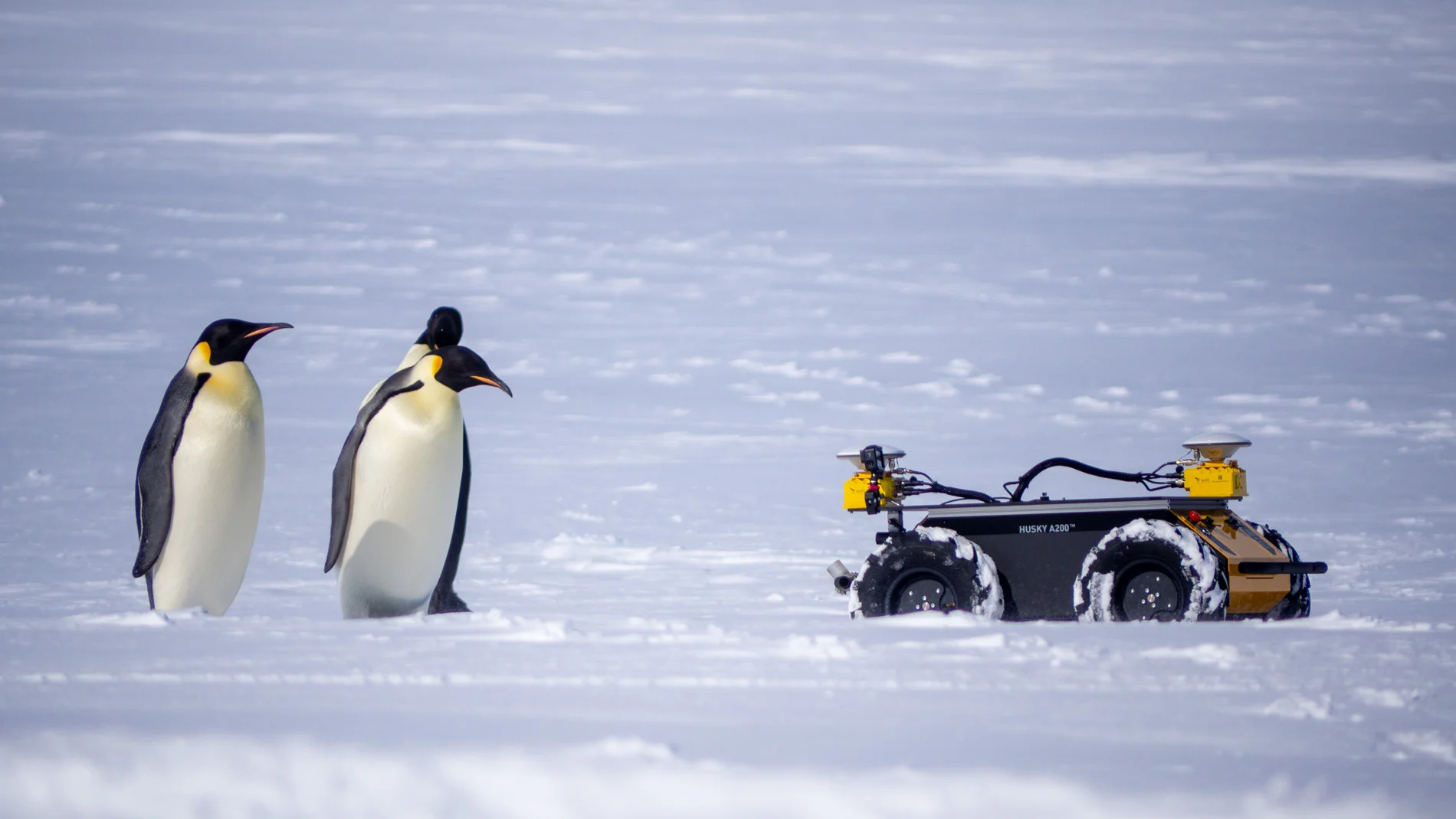Welcome to DU!
The truly grassroots left-of-center political community where regular people, not algorithms, drive the discussions and set the standards.
Join the community:
Create a free account
Support DU (and get rid of ads!):
Become a Star Member
Latest Breaking News
Editorials & Other Articles
General Discussion
The DU Lounge
All Forums
Issue Forums
Culture Forums
Alliance Forums
Region Forums
Support Forums
Help & Search
Science
Related: About this forumThis Tiny Yellow Robot Spies on Antarctica's Emperor Penguins
The vehicle dubbed ECHO slowly rolls up to the birds without stressing them and may allow researchers to monitor their ecosystem more closely
Elizabeth Gamillo
Daily Correspondent
May 5, 2022

The vehicle, ECHO, was designed by the Marine Animal Remote Sensing Lab at Woods Hole Oceanographic Institution in Massachusetts. ECHO is part of a large-scale research project that monitors the impact of human-induced climate change on the Southern Ocean. Daniel Zitterbart/Woods Hole Oceanographic Institution
Among thousands of emperor penguins in Atka Bay, a yellow robot named ECHO swiftly creeps over the Antarctic environment and patiently observes the birds. The autonomous, remote-controlled bot is about three feet long and stands at eye level with the adult penguins. ECHO monitors Southern Ocean marine ecosystems in real-time, year-round with minimal impact on wildlife.
Since 2017, ECHO has collected tracking data from microchips taped to the penguins' feathers, reports Zoe Christen Jones for CBS News. ECHO was designed by the Marine Animal Remote Sensing Lab at Woods Hole Oceanographic Institution (WHOI) in Massachusetts.
The bot is a recent addition to a long-term, large-scale research project called MARE, reports Popular Science's, Lauren J. Young. The acronym stands for "Monitor the health of the Antarctic maRine ecosystems using the Emperor penguin as a sentinel," according to the WHOI website. A sentinel species are organisms used to determine risks to human. By observing a sentinel species, scientists can identify advanced signs of environmental dangers. In the case of emperor penguins, if the population changes where they swim, hunt, mate or give birth, it indicates a sign change in the health of the overall ecosystem.
"We all know that the world is changing, and that change will have dramatic effects on biodiversity and on ecosystems, especially in very remote areas, like Antarctica," says Daniel P. Zitterbart, a researcher at the Marine Animal Remote Sensing Lab to Popular Science. "To understand if that's true or not, we need to start monitoring those systems very closely now."
More:
https://www.smithsonianmag.com/smart-news/this-tiny-yellow-robot-spies-on-antarcticas-emperor-penguins-180980021/
InfoView thread info, including edit history
TrashPut this thread in your Trash Can (My DU » Trash Can)
BookmarkAdd this thread to your Bookmarks (My DU » Bookmarks)
2 replies, 840 views
ShareGet links to this post and/or share on social media
AlertAlert this post for a rule violation
PowersThere are no powers you can use on this post
EditCannot edit other people's posts
ReplyReply to this post
EditCannot edit other people's posts
Rec (10)
ReplyReply to this post
2 replies
 = new reply since forum marked as read
Highlight:
NoneDon't highlight anything
5 newestHighlight 5 most recent replies
= new reply since forum marked as read
Highlight:
NoneDon't highlight anything
5 newestHighlight 5 most recent replies
This Tiny Yellow Robot Spies on Antarctica's Emperor Penguins (Original Post)
Judi Lynn
May 2022
OP
Rhiannon12866
(222,072 posts)1. K&R! Fascinating idea!
Penguins are so adorable and entertaining, I'd love to watch them, too! ![]()
InAbLuEsTaTe
(24,544 posts)2. SO cool... thanks for postin!!